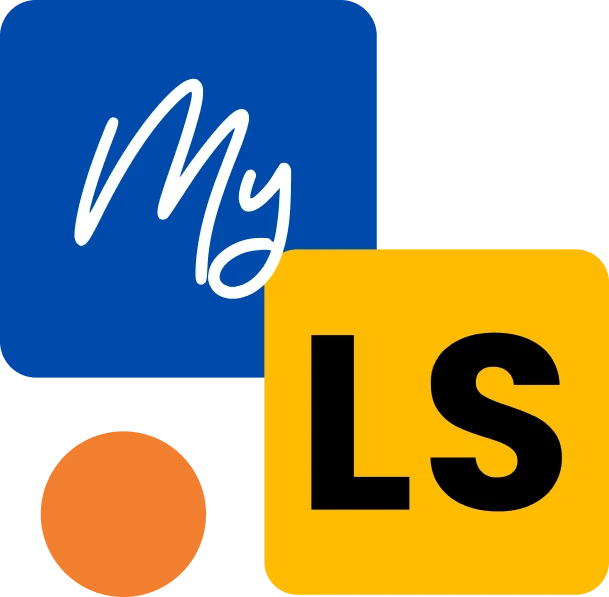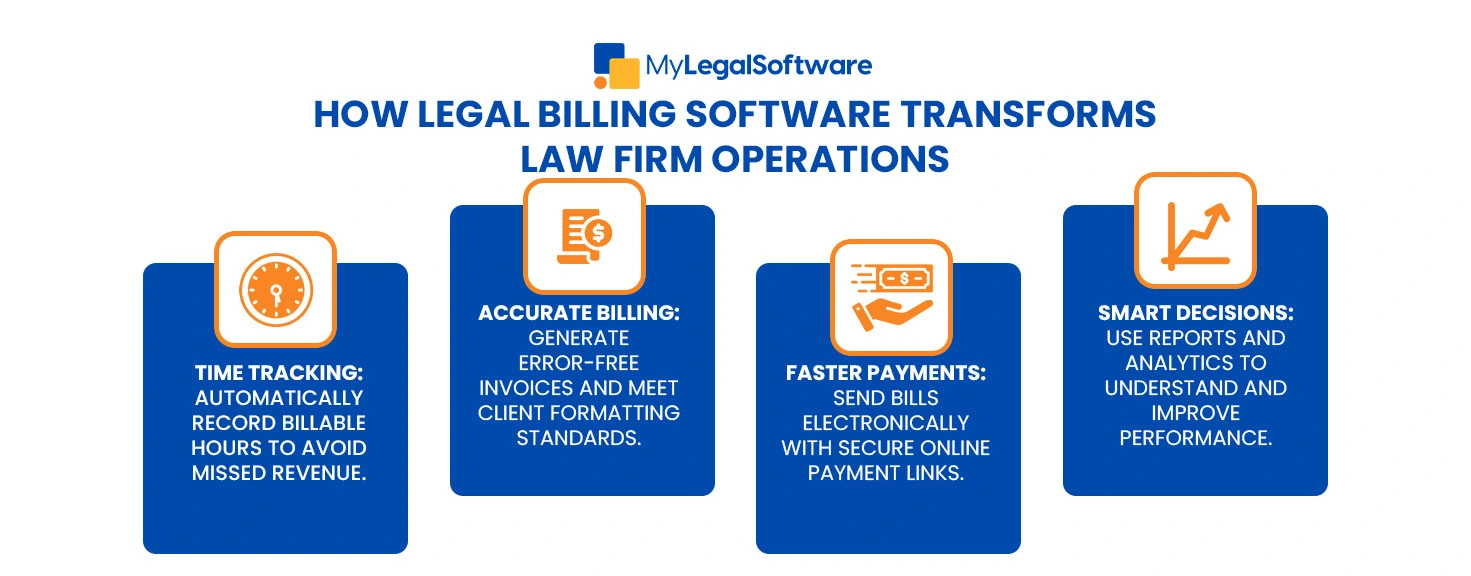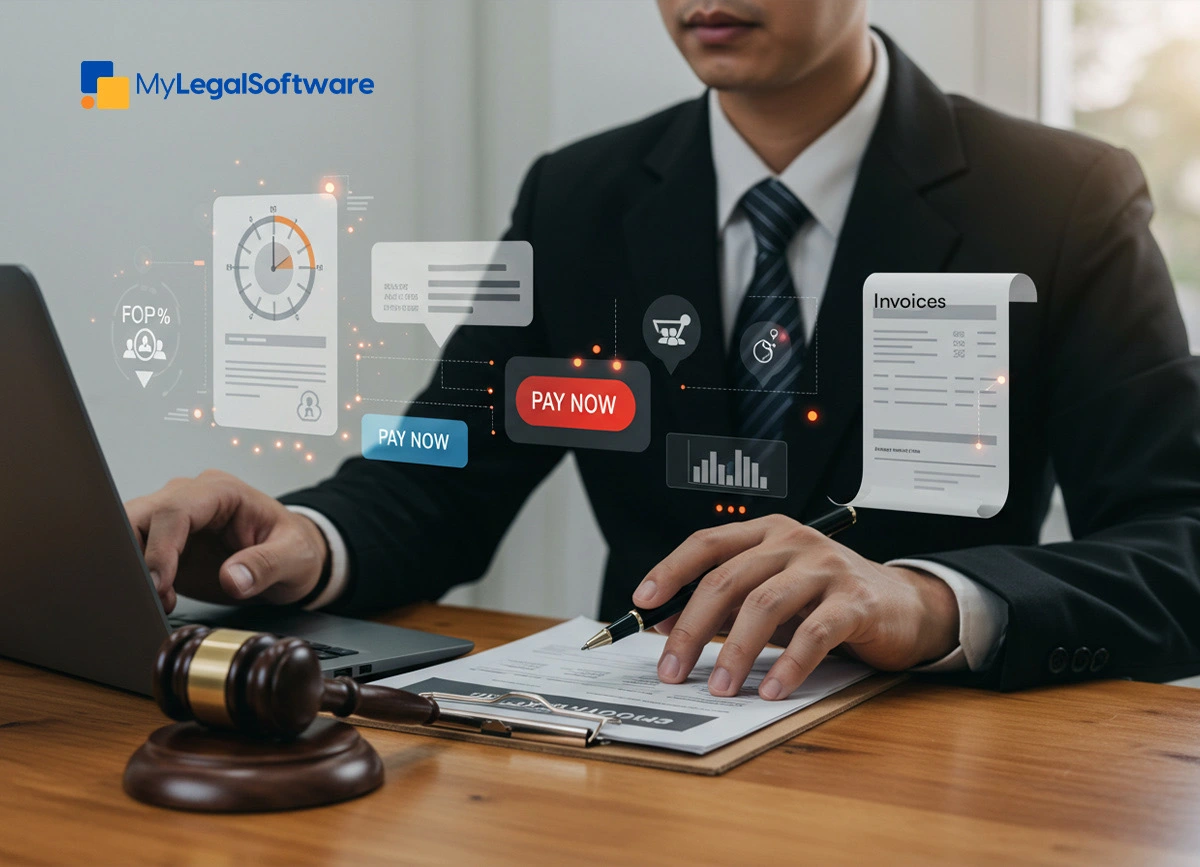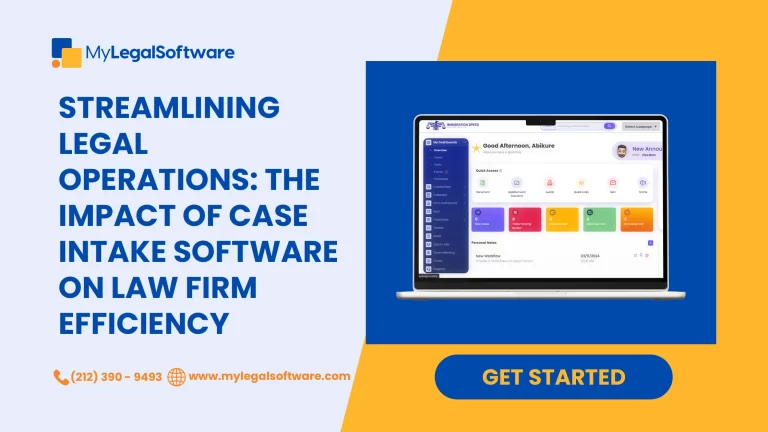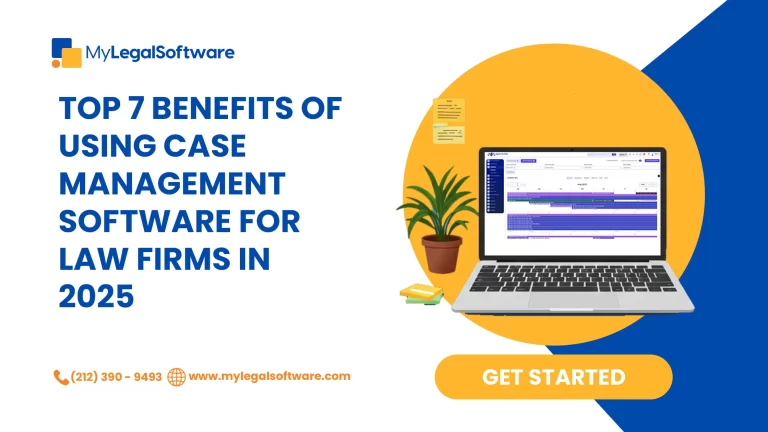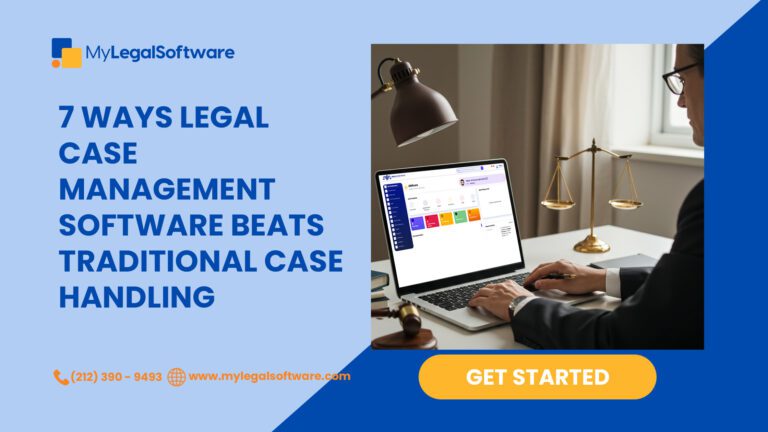Effective billing is one of the most essential elements of running a successful law practice. Yet, many law firms rely on outdated billing systems like spreadsheets, handwritten time logs, and manual invoicing. These traditional methods are inefficient, prone to errors, and difficult to scale. Today, law firms are expected to deliver excellence, operational transparency, and business agility, so relying on outdated systems can put your firm at a disadvantage. Adopting modern law practice billing software is now a necessity. This blog explores the importance of legal billing software, how it simplifies your billing process, and the key benefits it offers. Legal billing software is a must-have for the modern legal firm.
What Is Law Practice Billing Software?
Law practice billing software is a tool that helps law firms track time, manage billing, generate invoices, and get paid faster. Unlike traditional billing systems, legal billing software allows law firms to create, review, and send invoices electronically. It automates routine tasks, applies standard formatting, integrates with legal case management platforms, and even provides analytics on billing performance.
Why Are Traditional Billing Methods No Longer Sustainable?
Let’s face it: manual billing methods like spreadsheets and word processing documents are not built for modern legal business operations. They require manual entry of time logs, repeated formatting, and excessive back-and-forth communication to resolve disputes. As your firm grows or takes on more cases, these tools quickly become bottlenecks.
Common issues with traditional billing include:
- Missed or inaccurate billable hours
- Delayed invoicing and payment cycles
- Inefficient tracking of expenses and retainer balances
- Inconsistent billing formats that confuse clients
- Difficulty managing alternative fee arrangements
In contrast, law firm accounting software and billing platforms like MyLegalSoftware (MYLS) provide extensive solutions for streamlining operations while ensuring financial accuracy.
What Are The Benefits of Legal Billing Software?
- Automate Attorney Time Tracking and Invoice Creation
One of the primary features of law firm billing software is automated time tracking. Lawyers and legal staff can log time directly from case files, emails, or communications, eliminating the need for manual logs. This automation ensures a more accurate capture of billable hours, which translates directly into increased revenue.
With legal billing automation, your software can convert time entries into detailed invoices, applying pre-set billing rules and templates. This automation reduces administrative workload and improves the accuracy of your billing.
- Improve Billing Accuracy and Save Time
Manual processes increase the risk of human error. A missed decimal or forgotten time entry can lead to under-billing and lost revenue. Using legal invoicing software helps law firms automate error-prone tasks such as:
- Applying hourly rates
- Calculating taxes or fees
- Formatting invoices
- Delivering bills to clients
By minimizing these errors, law firms ensure they’re billing accurately for every minute of work.
- Faster Payments and Improved Cash Flow
Law practice billing software significantly improves the payment process. By sending invoices electronically and offering digital payment options, firms eliminate delays caused by manual payment methods.
Clients are more likely to pay quickly when the invoice is:
- Delivered immediately
- Easy to understand
- Free from formatting errors
- Linked to an instant online payment option
Platforms like MYLS allow firms to make secure payments. Clients can pay with just a few clicks, reducing collection times and improving cash flow.
- Data-Driven Insights for Smarter Business Decisions
Legal billing software is a strategic business asset. By tracking metrics like:
- Time billed vs. time worked
- Outstanding balances
- Realization and collection rates
- Profitability by case or client
Businesses gain insights that help make smarter operational decisions. With integrated reporting dashboards, law firm accounting software like MYLS provides a clear view of your firm’s financial health and performance, allowing you to adjust your rates, staffing, or client intake.
- Enhanced Client Transparency and Satisfaction
Clients want clarity when it comes to legal billing. Confusing invoices, inconsistent formatting, or hidden fees erode trust. With legal billing software, firms can provide consistent invoices that follow industry or client-specific formatting standards.
This transparency strengthens your professional credibility and builds long-term trust with your clients. The better their billing experience, the more likely they will return or refer others to your firm.
- Supports Alternative Billing Models
While hourly billing still dominates, many firms now offer flat-fee, subscription-based, or unbundled legal services. However, managing these non-traditional models can be complex without the right tools.
Modern legal practice management software with integrated billing features can easily handle various pricing models. You can:
- Track flat-fee services separately
- Set caps or milestones for billing
- Generate reports on profitability per model
This flexibility makes it easier to meet the demands of today’s legal clients.
How Does Legal Billing Software Work?
Here is a typical billing workflow using MYLS law firm billing software:
- Time Tracking: Attorneys log time automatically through the platform or from communications.
- Invoice Generation: The software creates invoices based on tracked time, expenses, and selected billing formats.
- Review and Delivery: Drafts are reviewed and approved, then sent electronically to clients.
- Payment and Follow-up: Clients pay online through secure links. MYLS sends automated reminders for outstanding fees.
This streamlined process drastically reduces billing cycle times and improves the firm’s overall financial performance.
How Do You Choose the Right Billing Software for Your Law Firm?
When evaluating legal billing software, consider the following:
- Does it support the billing structures your firm uses?
- Can it integrate with your existing legal practice management software?
- Is it user-friendly for your staff and convenient for your clients?
- Does it offer strong reporting and analytics capabilities?
- Can it handle online payments securely?
MYLS offers all these capabilities in a single platform. From attorney time tracking to invoice formatting, reporting, and secure online payments, MYLS is built to support law firms at every growth stage.
Final Thoughts
By investing in law practice billing software, your firm can:
- Improve productivity
- Get paid faster
- Reduce billing disputes
- Deliver a better client experience
- Make data-informed decisions
Whether you are a solo attorney or part of a large legal team, upgrading your billing system with a solution like MYLS can be the key to unlocking sustainable growth and long-term success.
Visit MyLegalSoftware.com to simplify your legal billing process today.
Frequently Asked Questions (FAQs)
What is law practice billing software?
Law practice billing software is a digital tool to help law firms track billable hours, generate invoices, and manage payments. It typically integrates with legal practice management software and automates tasks like attorney time tracking, invoice formatting, and client payment processing.
Why is billing software necessary for law firms?
Billing software improves accuracy, reduces administrative overhead, and ensures faster payments. It also helps law firms maintain transparency with clients and adapt to modern billing models like flat fees or alternative fee arrangements.
How does attorney time tracking work in billing software?
Attorney time tracking features allow lawyers to record time automatically while working on emails, documents, or case files. Some legal billing tools even offer timers or enable post-task entries to ensure no billable time is missed.
Is legal billing software secure for handling client payments?
Reputable law firm billing software includes secure online payment options with encryption protocols and compliance with industry standards. Tools like MYLS allow clients to pay through secure links, ensuring convenience and data protection.
Can legal invoicing software handle different billing arrangements?
Most modern legal invoicing software supports hourly, flat-fee, retainer, subscription-based, and other billing models. It also allows you to customize invoices based on the client or matter.
Will legal billing software integrate with my current practice management system?
Many platforms, including MYLS, offer seamless integration with legal practice management systems, syncing case details, time logs, contacts, and accounting data for a smooth workflow.
How can billing automation benefit a small law firm?
Billing automation helps small law firms save time, reduce manual errors, and stay organized. It allows attorneys to focus more on client work and less on administrative tasks while improving cash flow and financial oversight.


